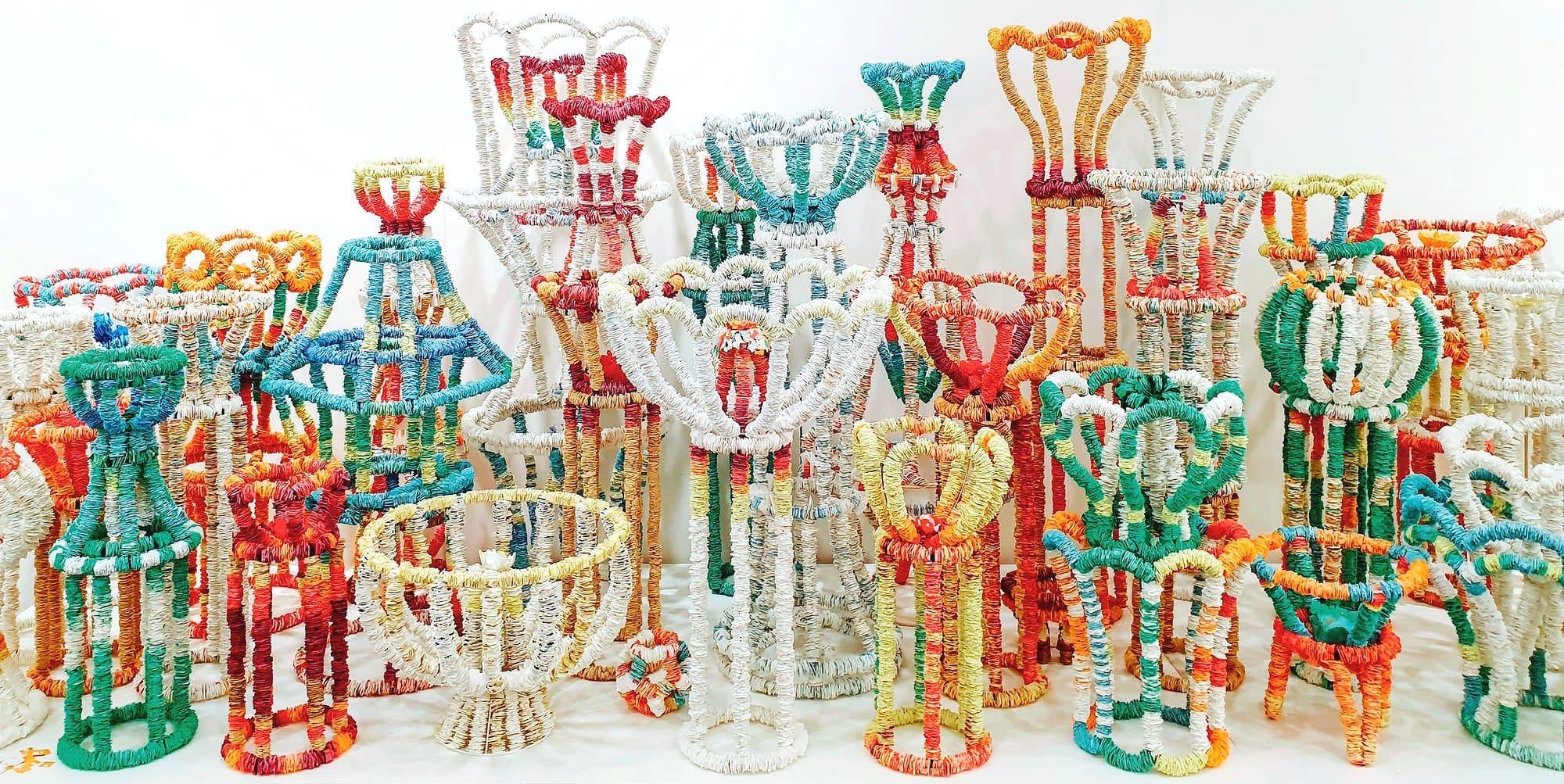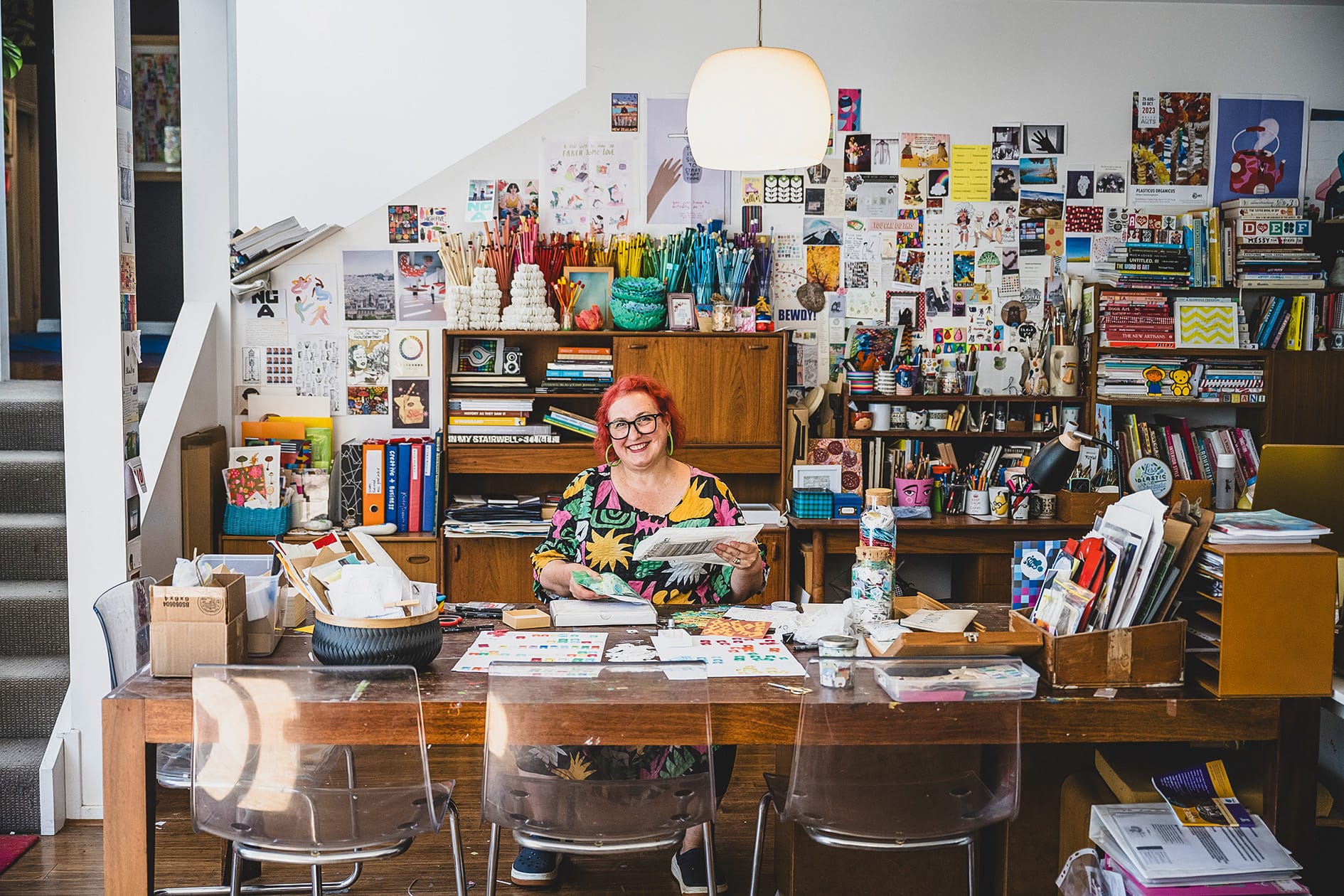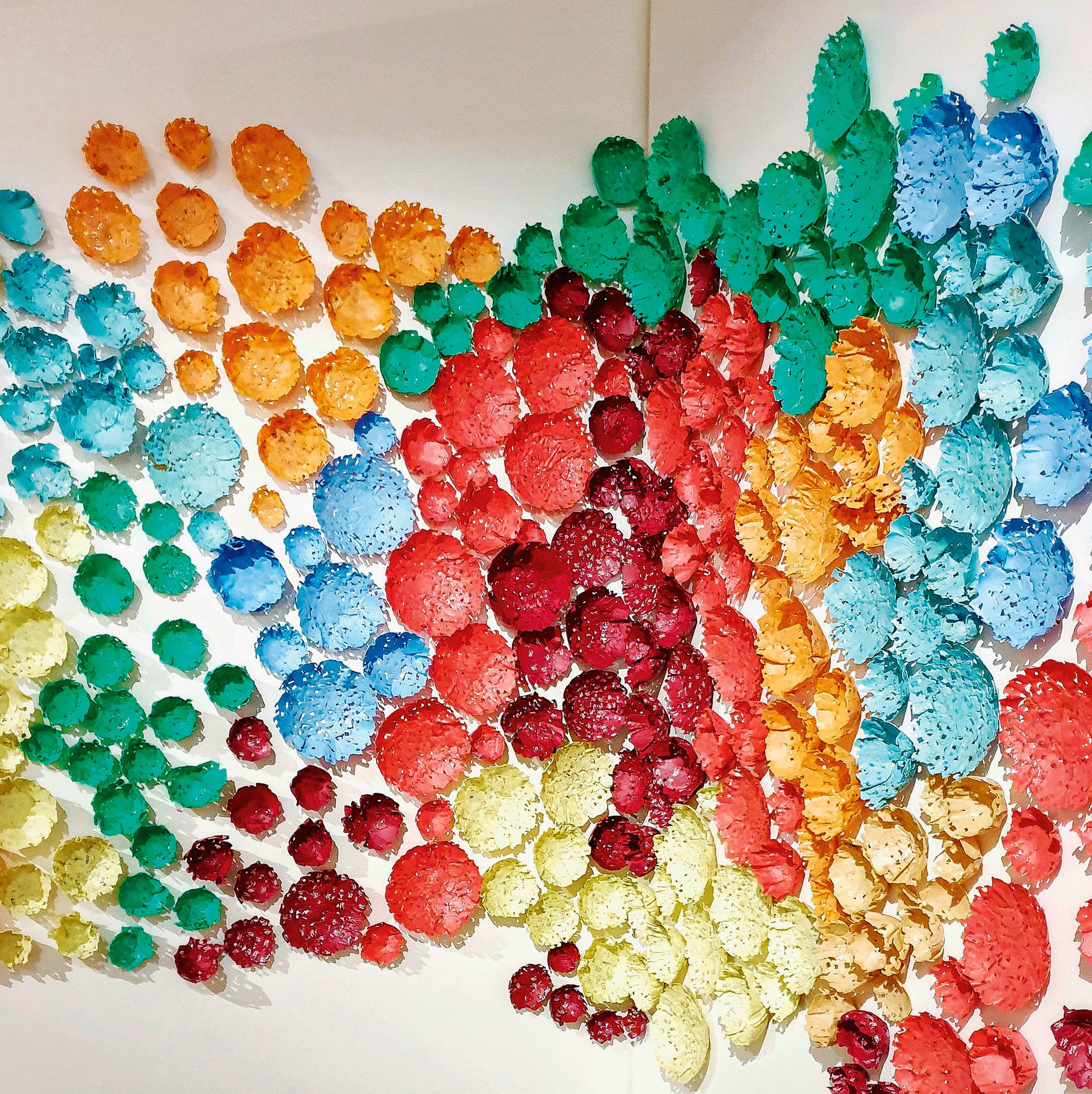
A tiny, mundane piece of plastic waste – the breadtag – has propelled Shani Nottingham on an artistic and emotional quest that has changed her life.
Words Tabitha Carvan
Photography Pip Farquharson
WHEN I tell Shani Nottingham that I don’t think “obsessed” is a negative word, her face lights up. She’s in the middle of explaining that even though she collects breadtags, it’s not like she’s obsessed with them. It’s not like she has a breadtag tattoo or anything like that. “Well, in that case,” she laughs, changing tack, “I’m definitely obsessed.”
She starts her explanation again. “The truth is, the other day I got a new breadtag from Vanuatu and I was very excited about it. For about 24 hours, I was thinking about it. Not just the breadtag, but also the story that came with it, which was about a lady visiting her granddaughter in Vanuatu and the granddaughter found it and said, ‘Look! You can send this to your breadtag friend!’ That kind of story, about other people being infected with the breadtag thing, that makes me really happy. So if you want to use ‘obsession’ in a positive way, yes, I have an obsession. Because most people don’t get excited over a breadtag from Vanuatu.”


In the past five years Nottingham has acquired millions of breadtags. “I have literally spent a huge majority of my life in the last few years sorting them,” she admits. Vanuatu is the 18th country represented in her collection, which includes about 200 different types. The idea of breadtag types might surprise you, because maybe you don’t pay too much attention to them. Breadtags don’t just come in different colours; they can have different-shaped claws, or bumpy edges, or an interior hole that looks perhaps like an apple or maybe Mickey Mouse.